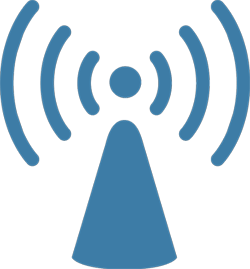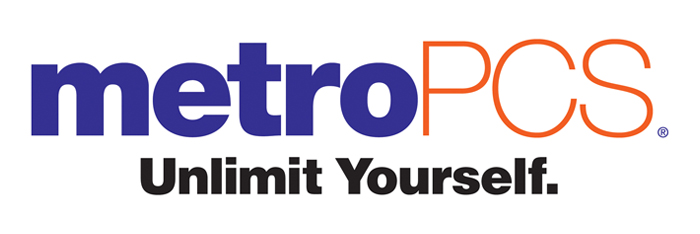Choosing the best cell phone carrier these days isn’t a simple task. Should the decision come down to network coverage, or should it be based on their selection of smartphones? Or maybe the quality of its customer service is what’s most important for you.
 Ideally, network coverage and carrier prices would be the most significant factors in the decision making process, especially since popular smartphones like iPhone 5 and Samsung Galaxy S3 are available across multiple providers.
Ideally, network coverage and carrier prices would be the most significant factors in the decision making process, especially since popular smartphones like iPhone 5 and Samsung Galaxy S3 are available across multiple providers.
So when it comes down to it, rating the quality of nationwide coverage is just plain difficult. We can test in our Miami Beach and New York locations, but we can’t test all across the United States. It’s a pretty big country, and to accurately rate the best network, you’d have to make calls in hundreds of locations across America.
The good part is that in this guide we’ll tell you everything you need to know about each major USB carrier, and some regional ones as well. Also, we’d like to continue to ask for your help in rating the carriers and sending your feedback.
The biggest national carriers offer services across the US. They offer a wide range of services with standard monthly plan that may or may not require a contract. Most offer month-by month prepaid plans as well. National carriers are mostly retreating from “unlimited plans,” and are beginning to offer shared data plans for multiple devices, which typically benefits families the most. Within these plans you can purchase data allowance of several GBs per month.
1. Verizon Wireless
After gaining control of Alltel back in January of 2009, Verizon Wireless became the biggest wireless carrier in the United States. Verizon was one of the first carriers to offer a 3G network, a music store, and GPs services. Also, it was the first carrier to offer a mobile television network. Verizon Wireless announced its 4G LTE network back in December2010, although Verizon’s first 4G phone, the HTC Thunderbolt, didn’t come onto the scene until March 2011. Initially joint venture between Verizon Communications and Vodafone, Verizon Wireless was formed back in 2000 through a merger between GTW Wireless and Bell Atlantic. In June 2012, Verizon also introduced the first shared data plans.
The Verizon Facts:
- Verizon Wireless offers new subscribers the opportunity to select a shared data plan, which charges a device access fee and offers unlimited talk, text, and hot-spot connectivity along with your data tier.
- Verizon Wireless 4G LTE will cover over 400 markets by the end of 2012.
- Every new Verizon Wireless smartphone will be 4G LTE compatible.
- Of the major carriers, Verizon Wireless has received several awards from J.D Power and Associates for the best network, and more recently for customer service.
- Verizon Wireless includes a wide selection of the most popular smartphones including iPhone 5 and Samsung Galaxy S3. The carrier is expected to reintroduce Windows Phone with OS 8 in time for the 2012 holiday season.
- Its Friends & Family plan offers unlimited calling to a select group of number, even landlines.
- As A CDMA carrier, Verizon Wireless international coverage is limited to a handful of countries but it does offer dual-mode CDMA/GSM handsets.
- Verizon offers prepaid plans.
What does CNET think of Verizon Wireless? Its supporters love their customer service and excellent coverage the most, while its detractors complain that it’s far overpriced and limited.
2. AT&T
As of 2012, AT&T is considered the second largest cell phone carrier in the United States right after Verizon Wireless. Back in the spring of 2011, AT&T unsuccessfully tried to acquire T-Mobile, which if it succeeded, would have pushed the carrier far above Verizon. AT&T offers a widespread network and a large and varied selection of mobile phones and smartphones. Originally formed in 2001 as Cingular Wireless, it changed its name to AT&T back in 2007 to reflect its parent company.
The AT&T Facts:
- In Summer of 2012, AT&T released its own shared data plans.
- For those lucky enough to be grandfathered in, AT&T offered rollover plans that let you roll unused minutes over to the following month.
- AT&T has a GSM network and offers extensive international roaming.
- It offers a 4G LTE network that may trail Verizon in terms of overall coverage, but it does offer fast 4G speeds.
- AT&T has some of the most popular smartphones available on the market as soon as they’re released. It was the first carrier to offer the famous Motorola Razr V3 and spend two years as the exclusive provider of the Apple iPhone.
- AT&T offers a varied selection of smartphones with all the major operating systems and is a major Windows phone supporter.
- AT&T also offers month-to-month prepaid plans.
Its major plus for customers is its wide selection and availability of the trendiest smartphones and tablets. While its detractors complain of very poor customer service and coverage.
3. Sprint
Sprint and Nextel merged in 2005 to become the third largest wireless carrier and the second largest CDMA carrier in the United States. Sprint began wireless service under its brand in 1995, and Nextel was founded in 1987. Prepaid service is available only through its Boost Mobile and Virgin Mobile subsidiaries.
The Sprint Facts:
- Sprint continues to offer unlimited calling and data plans.
- This carrier is the third of the major networks to launch 4G LTE, behind Verizon and AT&T. As of Summer of 2012, Sprint’s 4G LTE service operated in 15 US cities.
- Sprint was the first major US carrier to introduce 4G network and the 4G mobile phone, the HTC Evo 4G back in June 2010.
- Sprint now includes most of the major smartphones, including Android smartphones, the iPhone and Blackberry.
- Sprint has robust eco-friendly line and offers several rugged phones.
Customers claim that Sprint is the most affordable of the major cell phone carriers with great 4G service. Its detractors note that its customer service is terrible and its billing system is a major headache.
4. T-Mobile
T-Mobile is the 2nd largest GSM carrier in the United States. It operates one of the smaller US networks of the top 4 carriers, but it has roaming agreements with AT&T and some other smaller operators. Back in the summer of 2011, T-Mobile announced its HSPA+42 “4G” network, but a potential buyout by its only national GSM competitor, AT&T, set T-Mobile back in maintaining its network and competing with other US carriers.
The T-Mobile Facts:
- T-Mobile currently offers unlimited calling and data plans.
- The carrier has a Wi-Fi calling app that lets you make phone calls when the network connection is weaker.
- T-Mobile has extensive international roaming and thousands of Wi-Fi hot spots in the US and Europe.
- Of the top 5 major carriers, T-Mobile has received the highest customer service rating by J.D Power and Associates.
- T-Mobile was the first carrier to launch a Google Android phone. Its smartphone lineup now includes Android, Blackberry, and Windows Phone devices, but no iPhone.
- Its plans are very competitively priced compared to the other major carriers. In 2009, it introduced Even More Plus plans that don’t require a contract, but don’t offer subsidies for phones. Its Even More Plans require contracts, but also come with hardware subsidies.
- T-Mobile offer prepaid plans. Its upgraded HSPA+ network offers 4G-like speeds, though it is not technically a 4G technology.
Customers mostly support T-Mobile’s customer service and flexible network plans, while its detractors focus mainly on the unusual amount of dropped calls.
5. MetroPCS
MetroPCS is the 5th largest network carrier in America with coverage in Georgia, Florida, Texas, Michigan, Massachusetts, New Hampshire, New York, New Jersey, Pennsylvania, Nevada, and California. Metro uses CDMA technology and offers unlimited minutes as a feature of all its calling plans. A prepaid carrier, it doesn’t require a contract from any customer and it doesn’t place restrictions on the time of day when you call. However, any basic services on the other carriers like voicemail and caller ID can cost extra, and the data network isn’t as fast as national providers.
The MetroPCS Facts:
- International coverage is very limited.
- Most plans include unlimited talk, text and Web browsing.
- MetroPCS has a growing 4G LTE network, but its 3G service is still very limited.
- MetroPCS doesn’t require contracts and doesn’t offer service rebates and its cell phones are more expensive than with other carriers.
- MetroPCS isn’t nationwide, but it has various roaming agreements with several partners for nationwide service.
- Some basic services will be extra depending on the plan.
MetroPCS customers complain most about its lack of coverage while its supporters rave about its low prices and excellent customer service.









